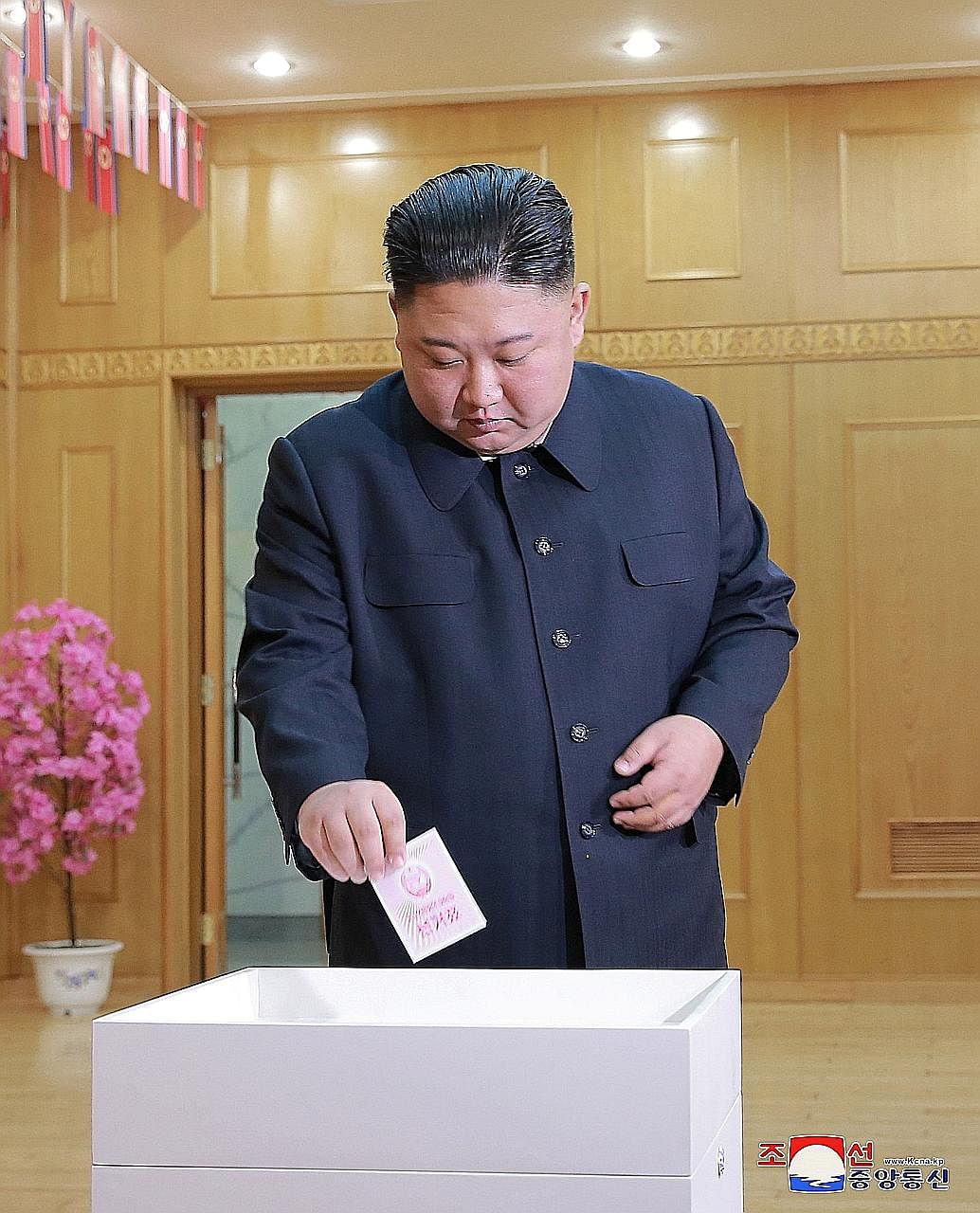PYONGYANG • North Koreans went to the polls yesterday for an election in which there could be only one winner.
Leader Kim Jong Un's ruling Workers' Party has an iron grip on the Democratic People's Republic of Korea (DPRK), as the isolated, nuclear-armed country is officially known. But every five years, it holds an election for the rubber-stamp legislature, known as the Supreme People's Assembly.
And in keeping with one of Pyongyang's most enduring slogans - "Single-minded unity" - there is only one approved name on each of the red ballot papers.
With portraits of the leader's father Kim Jong Il and grandfather Kim Il Sung looking down on every ballot box, voters lined up to drop their slips inside. There is a pencil in the panelled voting booths for anyone who might wish to register dissent by crossing out a candidate's name. But no one does.
Yesterday's voting took place in an atmosphere something like that of a carnival in Pyongyang, with children in red neckerchiefs parading in the streets to encourage voters to attend while bands played at polling stations.
The turnout the last time was 99.97 per cent, according to the official KCNA news agency, with only those who were abroad or "working in oceans" not taking part.

And the vote was 100 per cent in favour of the named candidates, a result unmatched anywhere else in the world.
"Our society is one in which the people are gathered around the respected Supreme Leader with a single mind," election official Ko Kyong Hak told Agence France-Presse as voters queued at the 3.26 Pyongyang Cable Factory. Participation in the election was a citizen's obligation, he said, "and there are no people who reject a candidate".
An editorial in the Rodong Sinmun, a mouthpiece of the ruling party, reinforced the message. Voters "should cast approval ballots with their loyalty to the party and the leader, absolute support to the DPRK government and the will to share their destiny with socialism to the last", it said.
With a total absence of electoral competition, analysts say the election is held largely as a political rite to enable the authorities to claim a mandate from the people.
It was the result of "established institutional inertia and a need to legitimise the government by simulating democratic procedure", said Mr Andrei Lankov of Korea Risk Group.
Soviet-style Communist states had a long tradition of holding general elections, he said, even if the ruling party ignored its own rules on holding regular congresses - which the North skipped for over 30 years.
"North Korea is just emulating all other Communist states," he said. "The early Communists sincerely believed that they were producing a democracy the world had never seen. So they needed elections and it became a very important part of self-legitimisation."
The North is divided into constituencies for the vote - there were 686 at the last election in 2014, when Mr Kim stood in Mount Paektu, a dormant volcano on the border with China revered as the spiritual birthplace of the Korean people. He received a 100 per cent turnout with 100 per cent in favour of him, according to KCNA.
Some of the seats are allocated to the Korean Social Democratic Party and the Chondoist Chongdu Party, which has its roots in a 20th century Korean religious movement. Both minor parties are in a formal alliance with the ruling party. Analysts and diplomats say they exist largely on paper, with only small central offices maintained for propaganda purposes.
AGENCE FRANCE-PRESSE
